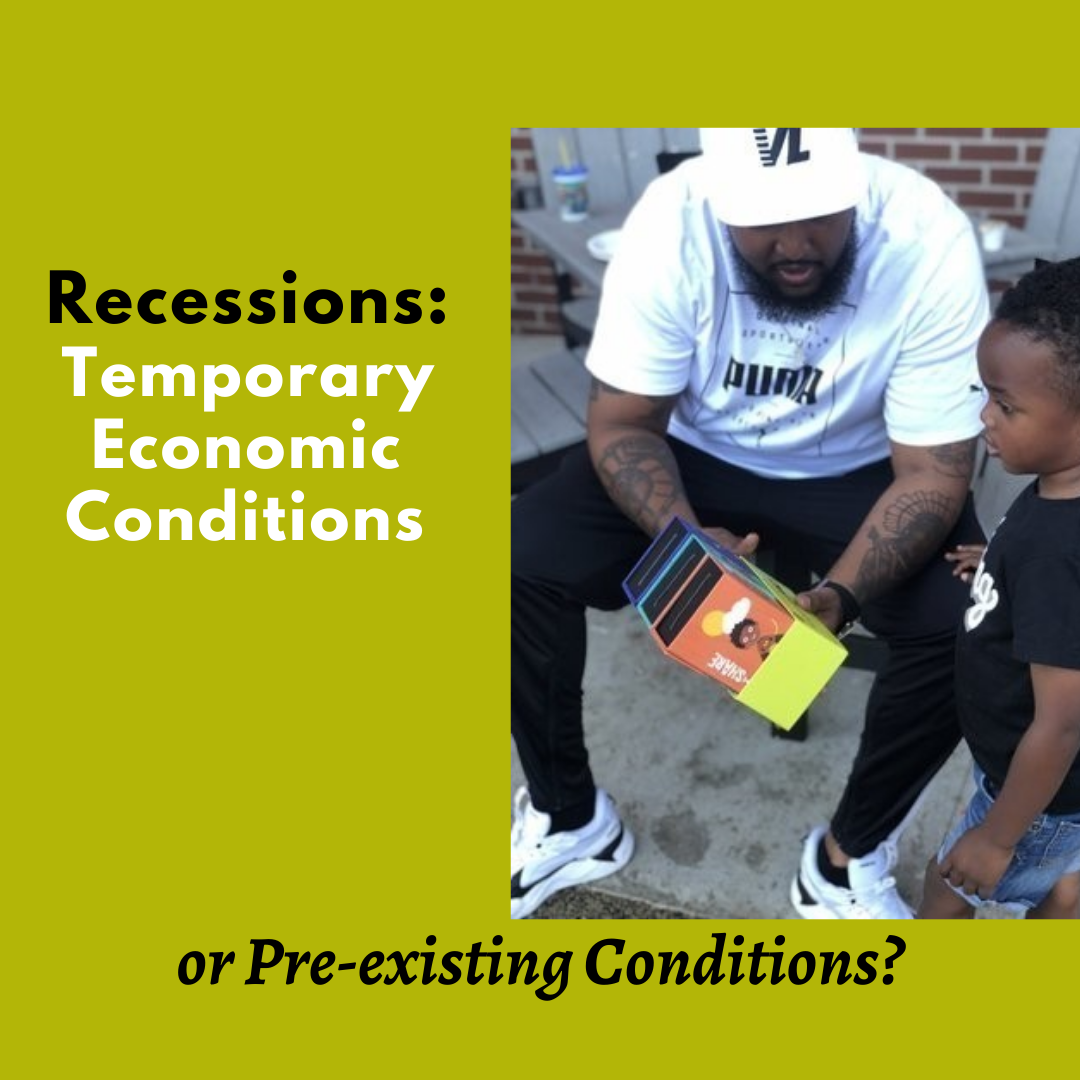
Recessions: Temporary Economic Conditions or Pre-existing Conditions?
Sep 07 , 2021
0 Comments
Three things in life are for sure: death, taxes, and recessions. The third one is less infamous, but if you run a quick Google search, you'll see some predictability to recessions. They'll occur almost every decade; Congress passes similar legislation to combat them, and communities of color, along with those struggling economically, will be most adversely impacted.
Americans will experience 7-10 recessions in a lifetime. That's three times the number of houses we'll own and more than that if you dance on the two and the four. If you don't get the dance reference, just know you have less to worry about.
The prescription for a recession is as predictable as your doctor prescribing a steroid pack for your annual sinus infection. Almost every recession is "treated" by lowering interest rates, providing tax relief, expanding government programs, and providing temporary financial assistance to whoever is determined to be most in need. However, with every looming recession, 2 things are growing in unpredictability:
- The depths at which families will fall during these periods; and
- Whether families will be able to rebound to their pre-recession economic status.
Think about the consequences of contracting Covid-19 for people with pre-existing conditions. That's kind of what it's like to be poor and/or from a community of color and entering a recession.
During the 2008 Great Recession, families of color fell out of the middle class at substantially greater rates than white families. The inability of families of color to sustain or regain wealth post-recession contributes to wealth inequality in this country. Today, wealth inequality is the same as during an era where employment discrimination, segregation, and voter suppression were legal.
The unpredictability of the consequences following a recession goes beyond racial lines. After the 2001 and 2008 recessions, the definition of what it meant to be "employed" began to evolve. The attainment of a college degree had fewer assurances than ever before, regardless of race. America is the wealthiest country globally, but we are notoriously bad with money and lack preparedness for unexpected events.
One way we can fix this is by expanding financial education in schools. Financial education should be used as a cross-curricular instructional tool at ALL levels of education. For example, in Math, we could teach real-world applications of whole numbers while simultaneously teaching the importance of saving.
Think about this; students will experience more recessions by their high school graduation than the number of classes that teach them about money.
We've just crossed the threshold of the 2020 Great Lockdown, and over 22 million people have lost jobs or been furloughed. That's more than the jobs lost during 2001 and 2008 combined. It seems that with every subsequent recession, our losses are getting worse and some to be never found again.
As a society, we must make a more substantial commitment to improving our financial capability between recessions, especially for those living in poverty, especially for communities of color, and especially for children. It's our responsibility to ensure that a recession is a temporary economic condition and not a pre-existing condition.

